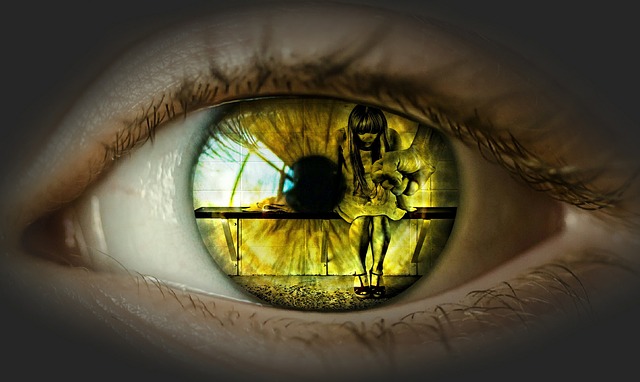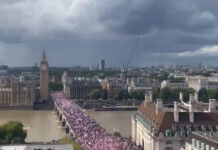On the 7th of April, Breitbart reported the story of a left wing political activist in Norway who bared all in a documentary about being raped at the hands of a Somali migrant. According to the report:
“An active member of the Norwegian Socialist Left Party (SV) who described himself as an ardent “feminist and anti-racist” explained the difficulty he experienced accepting that he had been anally raped by a male migrant. He said he didn’t blame the man for the attack, and regretted the fact he had been sent back to Somalia….”
“But I also got a strong sense of guilt and responsibility. I was the reason why he should not have to leave Norway, and heading for a very uncertain future in Somalia. He had already served his sentence in prison. Should he now be punished again? And this time much harder?”
“Mr. Hauken found himself unable to blame his attacker, saying “he is not responsible for his actions”. Rather than the rapist being in charge of his own destiny, he said he was merely “a product of an unjust world. A product of an upbringing marked by war and deprivation”, and said that rather than the attack being sexually motivated, it was all about “exerting power” over him.”
Mr. Hauken’s experience is not an isolated case. In Europe and the Middle East, scores of western supporters and field agents working to assist Islamic and migrant groups are regularly beaten and raped. In fact, I am told that in some organisations, the rape of female workers is simply regarded as par for the course, and are rarely reported.
In this sad and tragic story from Norway, some very important questions are raised:
- Are we responsible for our actions or are we, in the words of rape victim Mr. Hauken, “rather than the rapist being in charge of his own destiny” he was simply “a product of an unjust world”?
- And more broadly: Are we responsible for our actions, or is society to blame?
One particular answer to this question was given by French philosopher Jean-Jacques Rousseau in the 18th Century. Rousseau stated:
“Man was born free, and he is everywhere in chains.”
What Rousseau was basically getting at is this: We as human beings are born ‘good’ and ‘free’, but society with its structures and powers enslave individuals and make them ‘bad’ or force them to rebel.
Rousseau’s philosophy came, at least in part, as a protest against the Christian doctrine of “Original Sin” which claims that every man, woman and child is born with a broken and sinful nature.
Now, it would be nice to believe that we are all born ‘good.’ And it is hard at times not to see a pure freedom and innocence in children and infants, particularly when they have cute turned up to 11. Their parents, however, may have other ideas when they are screaming and can’t get them back to sleep at 4am…
As appealing as the sentimental idea that we as human beings are born good is, it simply is not true. For instance, modern psychology has revealed just how ravenously self-interested and narcissistic babies are. Of course, this is understandable, because an infant would soon die if his basic needs were not promptly met.
The counter argument to Rousseau is that human beings are born intrinsically selfish and narcissistic. In a real sense, children need to be ‘civilised’; to be taught manners and educated in order to function respectfully and properly and in society. Without this civilising force, human beings would be more inclined to act like wild beasts.
Rousseau’s argument that we are born good and innocent is one that continues today, and is most prevalent in so called ‘progressive’, socialist and leftist contexts. This is precisely the paradigm that led the Norwegian rape victim to state that his rapist wasn’t responsible for his actions, but is simply the product (and victim) of an unjust world.
When we scratch below the surface, we see that this kind of thinking is absurd and grossly unjust.
Yet, it is the kind of thinking which has led philosophers and reformers to believe that since human beings are born good, we are capable of building a perfect, just and utopian society. As such, it is not individual people that need to change, but ‘society’ and it’s ‘unjust structures; whether they be governments, economies or any other concentration of power. Through the application of certain social polices, government intervention and economic regulation and redistribution, they believe that a perfect society can be created, and that man may be liberated from the chains that have prevented him from living out his free and good nature.
Apply Rousseau’s thinking leads in essence, to an attempt to ‘return to Eden’. Far from being benign, it misjudges the human condition, and when applied to social and political actions leads to disastrous consequences, which I will outline further in the next part to this series on The Problem of Blaming Society.










